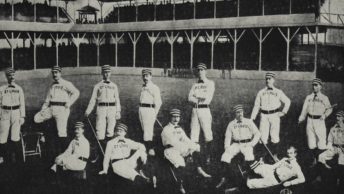Simple questions stem from what Jesus tells us in the Gospel of Matthew (5:17-37):
Are we pleased with the way the situation is in our home? In our village/town/city? With the way the Government is run? Are we pleased with the way children are taught in school? Are we okay with the way teenagers conduct themselves? Are we satisfied with the way adults behave? Are we edified and inspired by the way the old and the aged live their lives?
Chances are that, with very few exceptions, we have a lot to say about most people close to us, and in general. Well, the simple question: “are you pleased with such and such a thing, with such and such a person?” is answered by Jesus with this long gospel page.
But this page can be summarized thus: “If you are displeased with anyone, with any situation, it is up to you to change yourself.
You cannot change anyone else or any situation unless you are willing to change yourself first; unless you are truly serious about becoming salt of the earth and light of the world.”
The change that we hope for and envision for people around us, for our surroundings and for the whole world must start from our heart; and it requires the acquisition of crucial virtues.
The language used by Jesus is strong, shocking, forceful, compelling because he is trying to convince us that, any change that we wish, becomes realistic only after we are willing to apply self-awareness, self-discipline, self-control and a spirit of sacrifice to every aspect of our life.
And this is the very concept of virtue. Virtue is a Latin word that conveys the idea of strength, hard work, determination and endurance.
Believe it or not, with few exceptions, we resist this idea of leading virtuous lives that would change ourselves in order to change for the better the world around us. It is so because, in different ways, we ignore or take lightly Jesus as God’s Word.
Let me point out this sad fact. On this very day, in this Gospel passage we are reflecting upon, we can feel Jesus’ frustration with our hardness of heart.
“Amen I say to you… I tell you, unless…, but I say to you…Amen I say to you…You have heard….but I say to you…It was also said…but I say to you…Again you have heard that it was said to your ancestors….but I say to you…”
Satan, a fallen angel, knows very well that what generates significant changes is our life is God’s Word and so he is always very quick in making sure that we do not welcome Jesus as Word in us; that we do not dwell on Jesus as Word and that we do not act upon Jesus as Word, lest we become virtuous and we change ourselves and the world.
As soon as they hear the Word, Satan comes at once and takes away the word sown in them. (Mark 4:15)
How does Satan steal God’s Word from our minds and hearts? He has a variety of methods according to the different conditions he finds in our souls.
With some of us, he has simply to convince them to focus on the big issues, whatever those might be; he then goes through minor laws, the smallest letter or the smallest part of a letter (to use Jesus’ terminology) and leads those he has fooled to conclude that they should not bother with them. Before too long, they become “cafeteria Catholics.” They pick and choose what to hold on to and what to skip.
Satan may also resort to gradual minimization of one’s habitual sin. Over time, this is followed by desensitization to sin. And that, in turn, will be followed by procrastination in receiving the Sacrament of Reconciliation.
The devil achieves a lot of success also by convincing some of us that they are right and that they should wait for those who did them wrong to make the first move toward reconciliation. Of course, he doesn’t explain to these gullible people that the miseries and the restlessness that fill their days are the result of this attempt to offer to God their sacrifices before being reconciled with their brothers and sisters.
The area in which the devil has the easiest time, and in which he has plenty of volunteers working for him, is the business of cluttering hearts with anything that will leave no room for God’s Word. That could be lust, greed, apprehensions, vain pursuits of happiness, unruly drives, unbridled passions and all those other things the world proposes as needs that we ought to satisfy.
Finally, Satan reserves for himself the special task of stealing God’s Word from those who are exposed to it daily, or nearly every day, at Mass. They are those whose righteousness, incredible as it might seem, might not surpass that of the scribes and Pharisees. There is no question that they look pious, devout, dedicated, even saintly, but have yet to develop a genuine, honest, loving relationship with Jesus. They are scrupulous in observing even the minutiae of rules and regulations; they go way past what could be considered exemplary Christian living.
But they are convinced that all this hard work of theirs entitles them to look down on others; judge them harshly; and even condemn them on a regular basis. Their days are filled with their favorite prayers and devotions, but they do not find the time, every day, to listen humbly and with ardent desire to what Jesus wants to tell them, dwell on it and, then, act on it.
The result is spiritual stagnation, loss of fruitfulness and hardness of heart.
This is what God’s Word tells us today: “Before you are life and death, good and evil, whichever you choose shall be given to you.” With the help of the Holy Spirit may we choose wisely!








